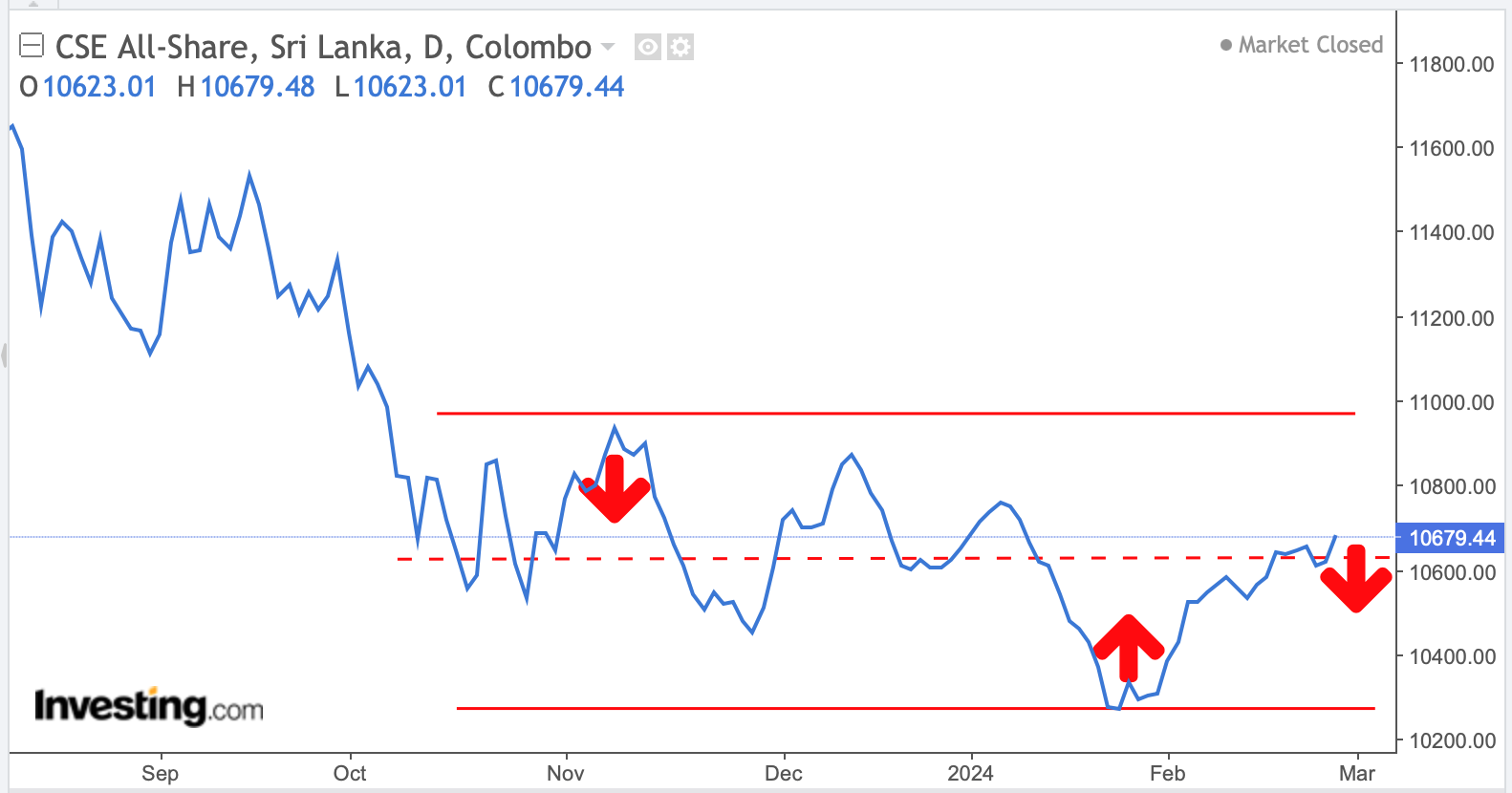Colombo Stock Market ready for another down trend ahead of 31st March 2024 quarterly results which is expected to be adversely affected by the escalation of Value Added Tax (VAT) Rate to 18% with effect from 1st January 2024.
In an attempt to raise government revenue, the VAT rate on applicable goods and services increased from 15% to 18% starting 01st January 2024. This amendment brought 97 previously VAT-exempt goods and services including, fuel, gas, telecommunication services, as well as several food products manufactured using locally cultivated grains, locally manufactured coconut milk, and certain dairy products (locally produced), under the tax umbrella. Items that continue to be VAT-exempt include medicines, educational services, public passenger transport services, and food products such as infant milk powder, locally manufactured rice, bread, etc.
Along with the change in tax rates, the VAT threshold for businesses was also reduced to an annual turnover of LKR 60 million (from LKR 80 million) and LKR 15 million per taxable period (from LKR 20 million). These changes to VAT are expected to generate revenues of around LKR 1,400 billion in 2024.
How increased VAT rate going to affect Sri Lanka businesses in 2024
The increase in VAT rate in Sri Lanka in 2024 is expected to have several effects on businesses in the country. Here are some potential impacts:
1. Increased costs: Businesses will have to pay a higher VAT rate of 18% on their purchases of goods and services. This will increase their costs of production and operation, which may lead to reduced profit margins.
2. Higher prices for consumers: Businesses may pass on the increased VAT costs to consumers by raising the prices of their products and services. This could result in higher inflation and reduced purchasing power for consumers.
3. Reduced consumer demand: Higher prices due to increased VAT may lead to reduced consumer demand for goods and services. This could negatively impact businesses, especially those in sectors that are sensitive to changes in consumer spending.
4. Compliance challenges: Businesses will need to adjust their accounting and reporting systems to accommodate the new VAT rate. This may require additional resources and expertise to ensure compliance with the new regulations.
5. Impact on small businesses: The reduction in the VAT registration threshold means that more small businesses will be liable to register for VAT. This could increase the administrative burden and compliance costs for small businesses, potentially affecting their viability.
6. Revenue generation for the government: The increase in VAT rate is expected to generate significant revenues for the government, which could be used for public infrastructure development and other initiatives. However, businesses may bear the brunt of this revenue generation through increased tax liabilities.
Overall, the increase in VAT rate in Sri Lanka in 2024 is likely to have a mixed impact on businesses, with some facing increased costs and compliance challenges, while others may benefit from increased government spending and infrastructure development.

